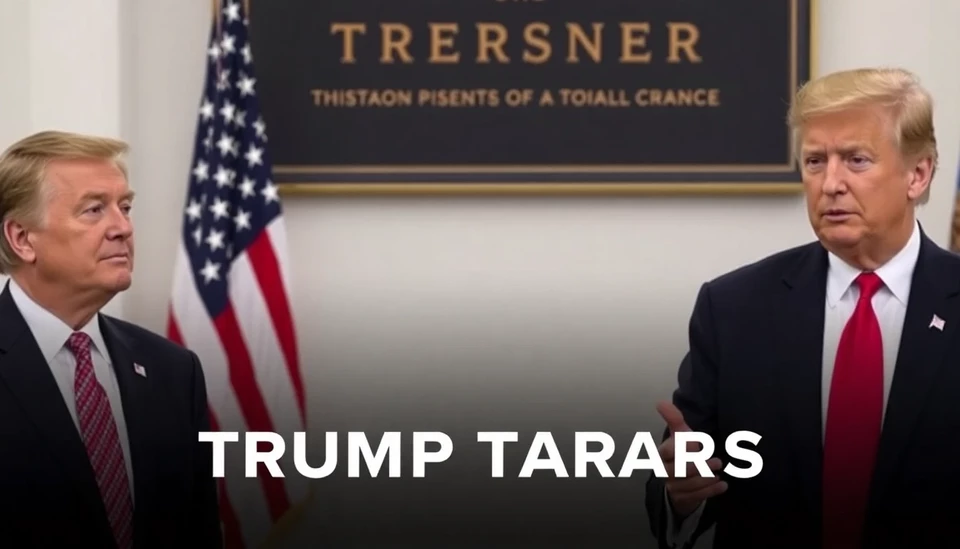
In a controversial move that has captured the attention of both domestic and international markets, former President Donald Trump is reportedly considering a series of new tariffs aimed at various goods imported into the United States. These potential tariffs are seen as a continuation of Trump’s previous trade policies, which have been polarizing amongst economists and lawmakers alike. As the date for implementation approaches, stakeholders across different industries are bracing for impact.
The proposed tariffs, which could affect items ranging from steel to electronics, are supposedly an effort to protect American manufacturing and address ongoing trade imbalances. However, critics argue that such measures could lead to increased prices for consumers and retaliatory actions from other countries, potentially igniting a trade war reminiscent of the 2018-2019 disputes.
In the past, Trump’s tariffs have elicited sharp responses from trading partners, particularly China, the European Union, and Canada. Analysts are divided on the repercussions of these new tariffs, suggesting they could exacerbate inflationary pressures already felt in the recovering economy as supply chain issues persist. The latest consumer inflation figures indicate a struggle to maintain price stability, raising concerns about the timing of these tariffs.
Market reactions have been immediate as stock prices fluctuate in response to the news. Industries heavily reliant on imports, such as construction and technology, have expressed alarm, fearing the tariffs could stifle growth and innovation. The disruption in supply chains, already burdened from the pandemic and geopolitical tensions, may worsen, leading to a cycle of economic uncertainty.
Furthermore, labor organizations are voicing mixed reactions; while some argue that tariffs may protect American jobs, others are concerned about the potential for job losses in sectors reliant on foreign goods. Political leaders are also weighing in. Some Republican lawmakers have shown support for tariffs as a means of reinforcing national interests, while others caution against the implications for free trade.
The Biden administration, meanwhile, is monitoring the developments and could respond with its own policies to counteract any significant economic fallout from Trump’s proposals. This ongoing saga highlights significant divisions in public and political opinions regarding trade policy in the U.S. As the situation develops, further analysis will be crucial to understand the full impact on the economy and international relations.
As of now, the deadline for final decisions is approaching, and various stakeholders are eagerly awaiting announcements that may redefine America’s trade landscape once more. Investors and consumers alike will be watching how these potential tariffs are framed in the context of economic recovery from the pandemic, with hopes that the outcomes will not derail progress.
#TrumpTariffs #TradePolicy #EconomicImpact #Inflation #Imports #Manufacturing #TradeWar #MarketAnalysis
Author: Laura Mitchell




